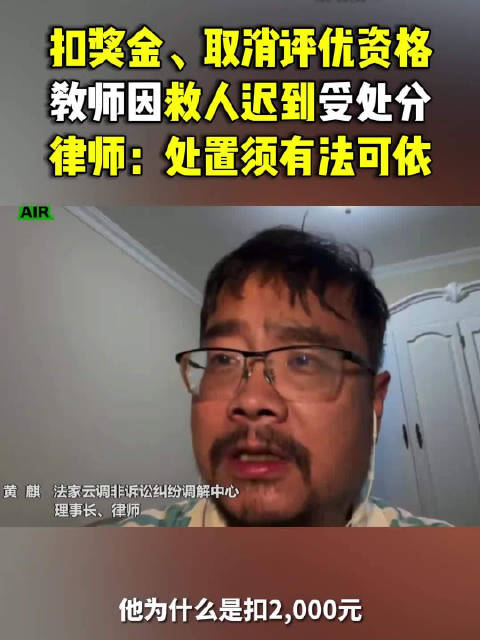With the completion of New Life Official, five Most of the popular and highly acclaimed dramas in July were twenty Seizure of episodes and below.
On May 18, the Entertainment Management Studio reviewed the top 20 dramas on the Yunhe Ri list and found that there were 5 dramas with 20+episodes, 5 dramas with 20 episodes or less, and more than half of the dramas with 30 episodes or less.
Among them, 10 episodes of Newborn, 8 episodes of My Altay, and 21 episodes of The Lover in Spring have good reputation. However, many episodes with high traffic IP and actors and more than 30 episodes often fall into the controversy of "slow pace" and "water duration".
So, has 20 episodes become the limit of the patience of domestic drama audience? Can't the writers of domestic dramas really write more than 20 episodes of stories? After in-depth dialogue with the screenwriter and the film and television editor, the entertainment management studio seems to have found the answer.
How is the number of sets determined?
In fact, it is the general trend of domestic dramas in recent years to shrink the number of episodes.
Since 2020, the State Administration of Radio, Film and Television has repeatedly advocated that the production of TV dramas should not exceed 40 episodes, and encouraged the creation of TV dramas within 30 episodes. In August 2023, it is again proposed to prevent the water injection drama from avoiding the number of episodes by splitting into upper and lower parts and shooting multiple seasons. In principle, it is not allowed to broadcast more than two characters in a short period of time in a row, and the episodes that are well connected but have obtained the distribution license respectively. Many long dramas that split up the top and bottom by changing their names have also gradually disappeared in the domestic drama market.
Yunhe data shows that there will be 8829 episodes of domestic new dramas in 2023, a year-on-year decrease of 278 episodes. In April 2024, there will be 56 dramas, 1849 episodes, and the average number of episodes will be about 33.
So, how to determine the number of episodes of a play?
Xiao Jiang, the literary editor in charge of a head film and television company, told the Entertainment Management Studio that the number of episodes of a play would be determined by the film owner according to the size of the novel. For example, novels with less than 200000 words usually have a volume of 20 to 30 episodes; Novels with a length of about 500000 to 1000000 words have a large amount of content and many character lines. They usually shoot about 30-40 episodes.
According to the set number of episodes, the film maker will find a suitable screenwriter to write the story outline first, and then write the outline of the diversity after the outline is confirmed, and then write the specific content of each episode.
However, from a commercial point of view, more than 20 episodes will be easier to release than 8, 12 and 16 episodes, and there will be great pressure to release plays below 12 episodes. Therefore, the editorial board will try to avoid a drama with less than 16 episodes. For example, it will choose a story with a larger size on the IP, or it will choose a story with more or less episodes in consideration of the number of previous episodes.
"For example, films with less than 12 episodes are difficult to sell, because the broadcast cycle is short, and may be finished before the heat rises, which will have an impact on members' recruitment and advertising exposure. Therefore, such films usually need to be of high quality, and the theaters on the platform, such as iQIYI's Mist Theater, Tencent's X Theater, and Youku's Night Theater, because they rely on the entire brand to attract investment and increase revenue."
On the other hand, some film and television companies will write more episodes when filing. If they find that it is too lengthy and affects the quality during the later cut, they will cut out fewer episodes, which is one of the reasons why many recorded dramas will change the number of episodes later.
For example, in the film and television adaptation of Legend of Zhen Huan, stories irrelevant to the main line of the original work were deleted, such as the love between An Lingrong and Zhen Huan's brother, Zhen Yan. At the same time, director Zheng Xiaolong also painstakingly deleted a large part of the film that he thought was wordy, poorly performed, and slow paced, which made it a classic without water dialogue and water plot.
Writers forced to "water episodes"?
For many domestic writers, they often have to passively "increase the number of script sets".
The screenwriter Meng Meng told the Entertainment Management Studio that if the platform is interested in a play and wants to make it self made or customized, or play the role of a big star, it needs to extend the original number of episodes. On the one hand, it can ensure better business income to support increased costs. On the other hand, it is very difficult to beat the schedule of big actors. Once they do, they hope to take more shots.
For this reason, screenwriters are often required to expand in the written outline. For example, the original outline is written in 20 episodes and will be expanded to 30-40 episodes. Under such circumstances, screenwriters can only rack their brains to increase the number of characters, story lines, the history of the protagonist, and the relationship between characters.
Meng Meng once had a play, and the film asked her to expand the outline from 20 episodes to 35 episodes. During the operation, she felt very difficult. She felt that in the water play, she had to overturn the outline and rewrite it. In this process, she first needs to ensure that the main line and secondary line are clear, so that the story can be unfolded around a core. Secondly, each deputy role cannot be a "tool", and the supporting role should also be a story.
Finally, each episode needs new progress, climax, turning point and suspense to keep the audience. "For example, it is impossible for a love drama to be in love for 30 episodes, and for a detective drama, it is impossible to find a murderer after more than 20 episodes."
Secondly, if a certain type of setting or role suddenly has good market feedback in the process of project promotion, the screenwriter will also be required to expand the length of such plot and role. "For example, at the beginning of this year, the villain design of" Writing "suddenly became popular. If I had such a design in my original project, but there were not many scenes, I would bring up the role of this character in the subsequent creation, and the length of the whole drama would also be expanded."

However, if the supporting actor "adds drama" is more abrupt and even affects the development of the main plot, it will also be criticized by the audience. Previously, Shen Yang, the screenwriter of Love · The First Love of a Thousand Year Old, apologized for the "addition" of the supporting actors in the later stage of the drama, saying that because of the scheduling problem, the starring drama could not be finished, but the final date had been set, so only more supporting actors could be filled in. At the same time, the crew wrote while shooting, but with the acceleration of shooting progress, the late stage is getting more and more hurried, and the quality is not as good as the first 8 episodes of scripts written before startup.
As for the "water duration", Meng Meng felt that it was not all the "pot" of screenwriters. "Sometimes the writers write a lot of foreshadowing, expression and information, but the actors do not show it, which will make the audience feel that they are in the water for a long time."
In addition, there are some very lazy low-quality "water plot" operations in the industry. When "Chuqiao Biography" was broadcast, netizens criticized it. At the beginning of each episode, the content of the previous episode should be repeated for several minutes; In other dramas, MV shots are frequently used to create atmosphere with music and pictures. However, apart from increasing the duration, they do not promote the plot.
Where does the 20 set law come from?
So why did the 20 meetings generally become the threshold for the audience to judge the "water rhythm" of a play?
In the view of Xiao Jiang, the editor in charge, 20 episodes are a dividing line for screenwriters to test their level. The dramas with more than 20 episodes are generally large in size, with many character story lines and plot points, so the overall structure will be difficult. Whether we can keep the unity before and after the establishment of people, and whether the clues, foreshadowing and suspense buried in front can justify themselves, all greatly test the ability of the screenwriter. In addition, more than 20 episodes of drama creation cycle will also be pulled longer, and the revision is to pull the whole body together, and it is common to overthrow completely.
"The key is that the outline and diversity should be well written. Each episode has its own function, and the plot points should be enough. However, if the grading outline in the front has been watered down, it can only be watered down later. Some screenwriters are not good enough, and every play is very dry. The audience will naturally feel lengthy when there are many meaningless scenes." Xiaojiang said.
In her opinion, this is also the significance of the existence of responsibility editing. Whether it is the outline, the outline of the diversity or the specific script, the editor in charge of each link will put forward suggestions for revision. For example, they will check the function of each play, either to shape characters, or to advance the plot, or to connect and pave the way, the play that cannot be done by either of them will be regarded as "water play".
"Many dramas often have flashbacks of men and women when they were young, but some scenes have the same amount of information, that is, how they knew each other when they were young, how their feelings were, and it's easy to slow down the rhythm if they play it repeatedly for many times," said Xiao Jiang.
Secondly, screenwriters will be lazy to use "water dialogue" to explain the identity of the characters. The content is very boring and easy to be skipped twice by the audience. In such a situation, the editor in charge will also take the initiative and even personally help to change the dialogue. In her opinion, an excellent screenwriter will design some suspense and plot to explain the relationship between the characters. For example, when introducing the mother daughter relationship between Zhang Fengxia and Li Wenxiu in My Altay, she set a suspense of "not answering the phone", which makes the first scene of the mother daughter meeting glow with great tension.

Therefore, "20 episodes" may be a professional test for screenwriters, but it is not a measure of audience patience. People's demand for film and television works is not only the instantaneous satisfaction of short videos, but also the narrative rhythm and charm brought by long videos. Once the rhythm is lost, no matter how beautiful the picture is, it will become tired and boring.
"The audience thinks that the length is subjective and has nothing to do with the number of episodes, which means that the screenwriter's play is unnecessary and uninteresting. A well written screenwriter can watch no matter how long the number of episodes is," said Xiao Jiang.
Special statement: The above article only represents the author's own views, not the views or positions of Sina.com. If you have any questions about the content, copyright or other issues of the work, please contact Sina.com within 30 days after the publication of the work.



















